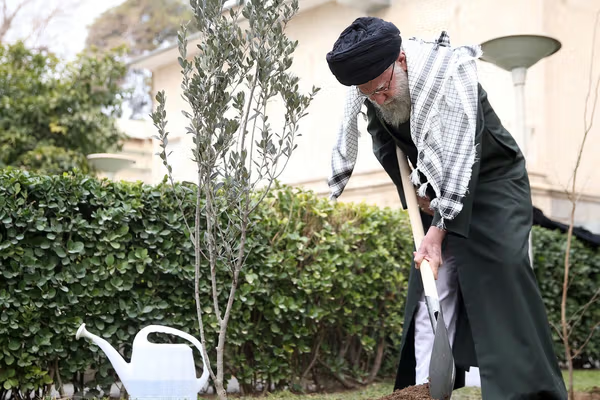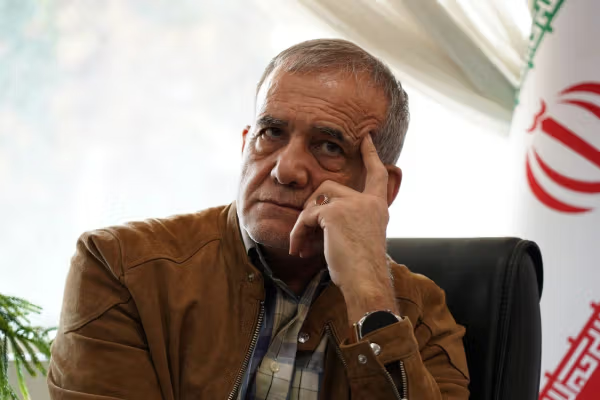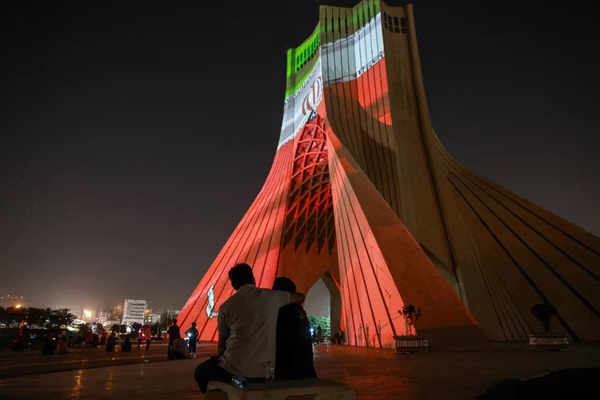
Iran’s ‘anti-infiltration’ bill targets society not spies
A measure now before Iran’s parliament promoted as curbing infiltration by foreign intelligence services in practice expands state control over journalists, students, academics and artists.

A measure now before Iran’s parliament promoted as curbing infiltration by foreign intelligence services in practice expands state control over journalists, students, academics and artists.

As Iran’s factions bicker over whether returning UN sanctions are calamitous or mere “psychological” warfare, ordinary people stare into an economic abyss.
At least four people were killed and about 20 injured when a passenger bus plunged into a valley on the Damavand–Firouzkouh road in the Alborz mountains northeast of Tehran, Red Crescent chief Shahin Fathi said on Friday, according to Iranian media.
Iranian officials are downplaying talk of another war with Israel and the United States but US carrier and tanker movements have sparked anxiety as weary citizens weigh readiness for a possible re-run of a punishing summer war.

While Iran’s hardline-led parliament resounds with defiant statements dismissing the impact of new UN sanctions, a few lawmakers are beginning to admit the likely economic toll.

Iran’s Supreme Leader Ali Khamenei blocked any potential signal of compromise before President Masoud Pezeshkian even landed in New York—a move some saw as a reckless gamble but in fact a calculated strategy rooted in decades of survival.

Iran’s Guardian Council on Wednesday approved a bill imposing harsher penalties for espionage and collaboration with Israel, the United States and other “hostile states,” clearing the way for the law to be enacted once signed by President Masoud Pezeshkian.

Once relegated to the world of academic social science, the term "paradigm shift" has gained traction in Iran's political discourse after a punishing 12-day war with Israel and the United States exposed the country's weakness.

One thing unchanged by the return of UN sanctions is Tehran’s internal discord, with hardliners and moderates battling it out over decisions ultimately taken elsewhere.

Iranian President Masoud Pezeshkian departed Tehran for the United Nations in New York last week buoyed by Supreme Leader Ali Khamenei's quiet blessing to start secret talks with Washington to ward off looming sanctions.

Pop concerts and late summer parties are spreading across Iran as music, as dance and fashion become battlegrounds testing the limits of state control.

Iran’s anti-narcotics authority warned on Monday that poppy cultivation would face severe punishment, including fines, prison and land confiscation for repeat offenders.

Iran’s judiciary chief warned on Monday that those undermining public morale amid renewed international sanctions would face legal action, accusing them of aiding hostile powers.

The reimposition of UN sanctions on Iran, atop the US sanctions President Masoud Pezeshkian had pledged to lift during his election campaign, has disillusioned many of his moderate supporters and prompted hardliners to call for his resignation.

A documentary released by Iran’s Intelligence Ministry claiming infiltration into Israel has drawn ridicule from both opposition groups and hardline loyalists of the Islamic Republic who criticized it for relying on public images and exaggerating its claims.

The Islamic Republic does not seek conflict but would respond forcefully to aggression, said Iranian President Masoud Pezeshkian in an interview with NBC on Friday.

President Masoud Pezeshkian’s speech at the United Nations drew an unusual split in Tehran: while conservatives and hardliners rallied behind him, many of his moderate supporters voiced sharp disappointment.

Officials in Tehran are scrambling to blunt the impact of impending UN sanctions later this month and avert another popular flare-up that even insiders warn is near.

Debate has erupted in Iran over President Masoud Pezeshkian’s upcoming trip to the UN General Assembly in New York, with politicians, clerics and commentators split on whether he should meet Donald Trump or avoid the risk.

Moderates are pushing for President Masoud Pezeshkian to meet Donald Trump at the United Nations in hopes of easing mounting pressure on Iran, but entrenched hardline opposition makes such a breakthrough highly unlikely.

Iran’s Ministry of Education introduced the recent 12-day war with Israel into school lessons with special content on the conflict to be included across all school levels in the new academic year, Education Minister Alireza Kazemi announced Sunday.

The UN Security Council’s decision not to lift sanctions on Iran has heightened the stakes for Tehran, with hardliners pushing for nuclear escalation, reformists urging engagement, and a public already strained by inflation.